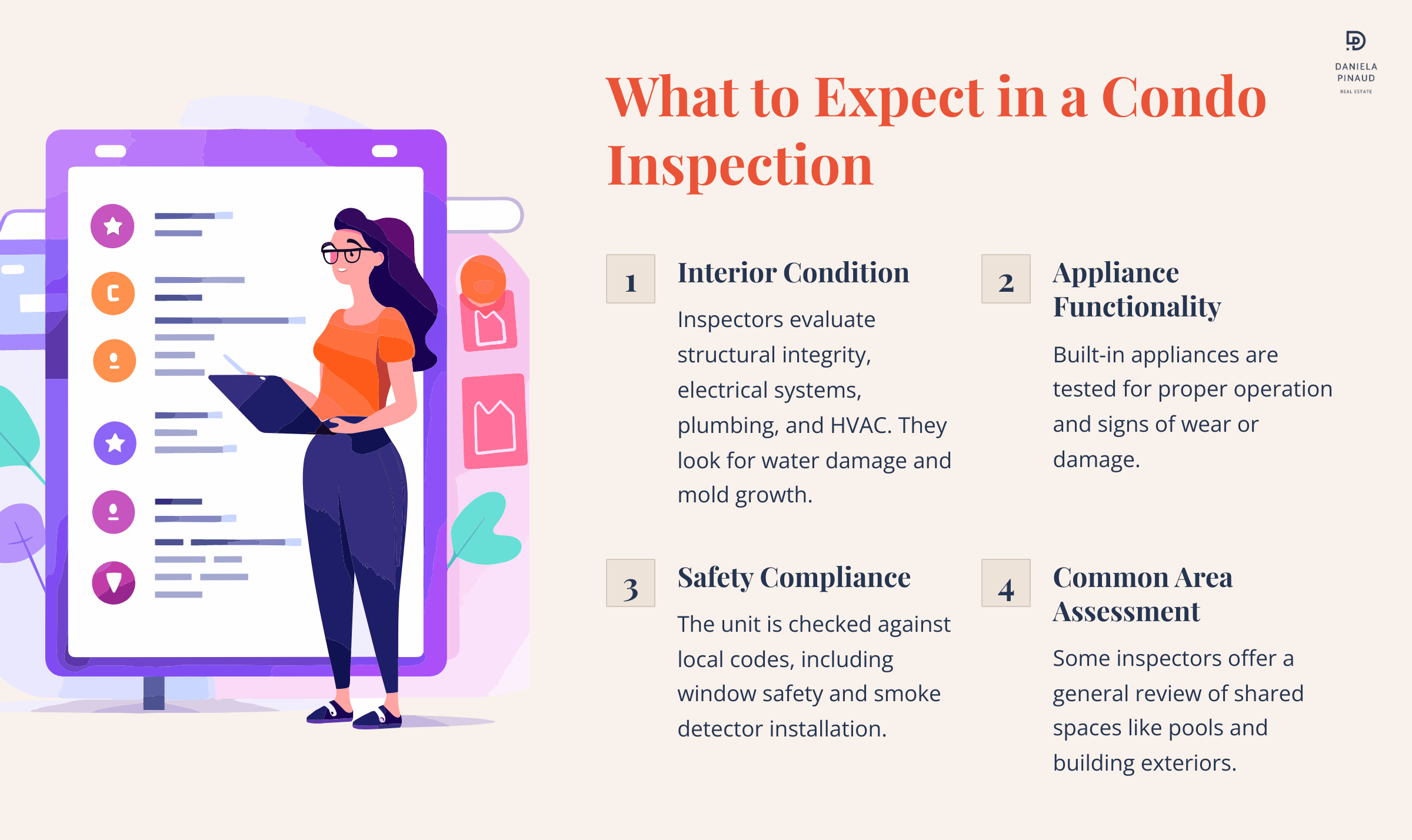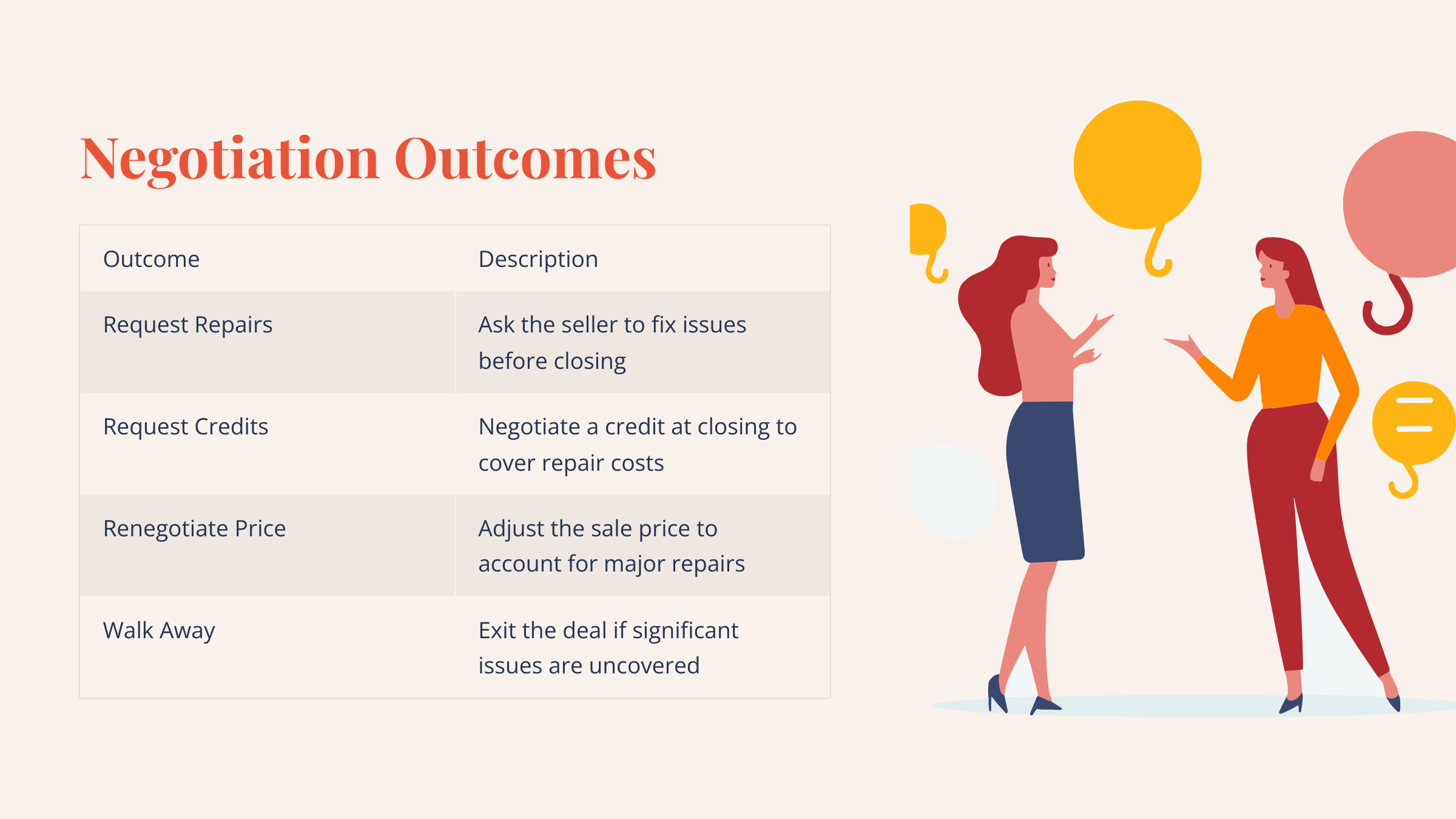Condo Inspections in Miami: What to Expect, Who Pays, When to Schedule, and a Handy Checklist
When purchasing a condo in Miami, a thorough inspection is essential.
This step ensures you’re fully aware of the property’s condition and any potential issues. Here’s what to expect, who pays, when to schedule the inspection, and a checklist to guide you through the process.
1. What to Expect in a Condo Inspection
A condo inspection encompasses a detailed and comprehensive review of both the individual unit itself and, in certain cases, the common areas that are managed by the homeowners’ association (HOA). Here are the main components of a thorough inspection:
Interior Condition: The inspector will conduct a detailed evaluation of the interior spaces, looking closely for structural integrity, as well as the operational status of electrical systems, plumbing, heating, cooling, and any signs of potential water damage.
Appliances: All built-in appliances within the unit are meticulously checked for proper functionality and noticeable signs of wear and tear, ensuring everything is working as it should.
Water Intrusion and Mold: Given Miami’s notoriously humid climate, mold growth and water intrusion are critical areas of focus that inspectors take very seriously.
Safety and Code Compliance: Inspectors will also confirm that the unit adheres to local codes and safety standards, which includes checking windows, smoke detectors, and various other critical safety features.
Building’s Condition and Maintenance: Additionally, some inspectors provide a general assessment of the common areas—this is especially relevant in older buildings—evaluating the exteriors, pools, and other significant structural elements to ensure they are well-maintained and safe for residents.
2. Who Pays for the Condo Inspection?
The buyer typically pays for the inspection as part of their due diligence. This fee can range from $200 to $500, depending on the condo’s size and age. This investment can reveal issues that may influence your purchase decision or support negotiations for repairs.
3. When to Schedule the Condo Inspection
It’s essential to schedule the inspection as soon as you’re under contract. Here’s a typical timeline:
Within the First Week: Schedule the inspection within the first week after going under contract. This provides enough time for negotiation if any issues arise.
10–15 Days Before Closing: If additional inspections are needed (like mold or structural inspections), allow time for those as well.
Before Financing Deadlines: For buyers using financing, it’s best to complete the inspection before any deadlines related to the loan, as the inspection results may affect your loan terms.
4. Checklist for Condo Inspections
Here’s a helpful checklist to guide you through the inspection process:
Before the Inspection
Hire a Licensed Inspector: Choose someone with expertise in Miami condos and local standards.
Review the HOA Documents: Ask for the HOA’s recent assessments, financial health, and maintenance history.
Know What the HOA Covers: Understand what’s your responsibility versus what the HOA will handle.
Understand Your Inspection Contingency: Review the inspection period in your contract to know your options for renegotiation.
During the Inspection
Attend the Inspection: Being there allows you to ask questions in real-time.
Ask About Common Issues: Specifically inquire about mold, HVAC, hurricane readiness, and other issues common in Miami.
Request an HOA Walkthrough: If possible, get a general assessment of shared areas, such as the exterior and roof, even if it’s not detailed.
Take Photos and Notes: Document any areas of concern for later reference or negotiations.
After the Inspection
Review the Inspection Report: Go through the report carefully, focusing on major issues or costly repairs.
Follow Up on Report Findings: Consult specialists (e.g., mold or structural engineers) for any major concerns.
Negotiate Repairs or Credits: Use the findings to request repairs, credits, or a price adjustment.
Make a Final Decision: Decide whether to proceed, renegotiate, or walk away based on the report.
5. Negotiating After an Inspection
After thoroughly reviewing the detailed inspection report, prospective buyers may engage in negotiations with the seller to address any significant issues that have been identified. Here are some common outcomes that might result from these discussions:
Request Repairs: Buyers may formally request that the seller fix specific issues before the closing date, ensuring the property is in optimal condition.
Request Credits: Alternatively, buyers can ask for a credit at closing that would cover the necessary repair costs, allowing them more flexibility with the finances.
Renegotiate Price: Another valid option is to adjust the sale price, particularly when substantial repairs are required, making it more favorable for the buyer.
Walk Away: If significant issues are uncovered during this process, buyers have the right to exit the deal altogether, usually within a set period as stipulated in the contract, thereby protecting their investment.Final Thoughts
A condo inspection is a valuable step that protects your investment and ensures your Miami condo meets your expectations. By understanding what to expect, scheduling the inspection early, and following this checklist, you’ll make this process efficient and informative.
Fill out the form, and I'll contact you shortly.





